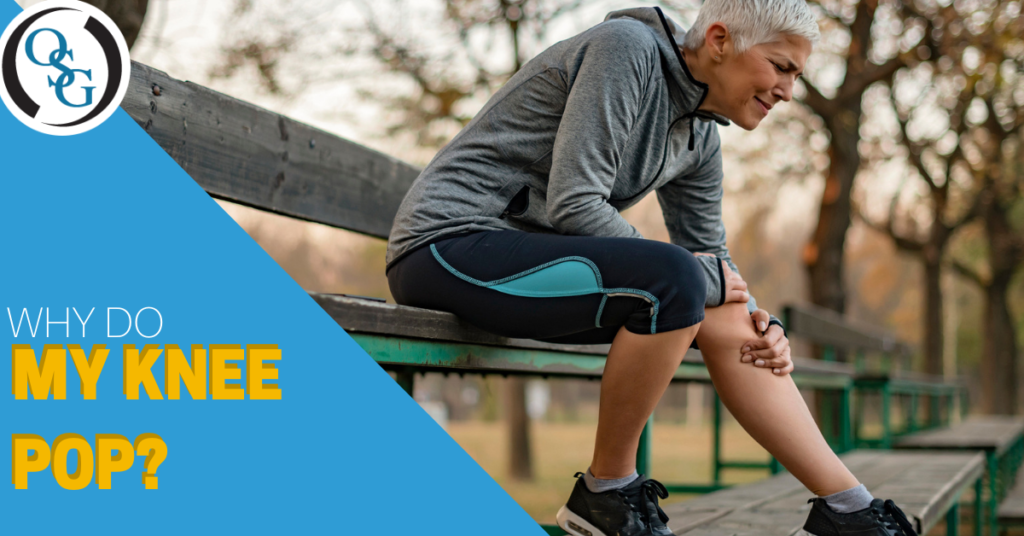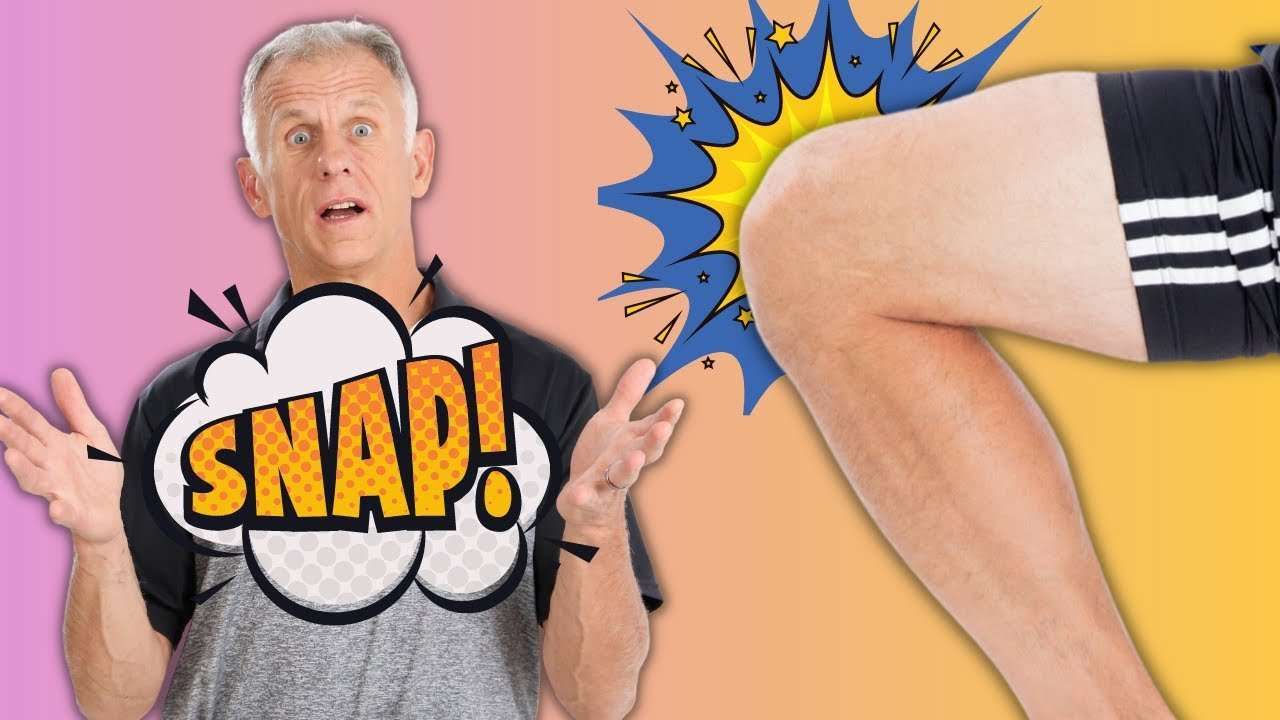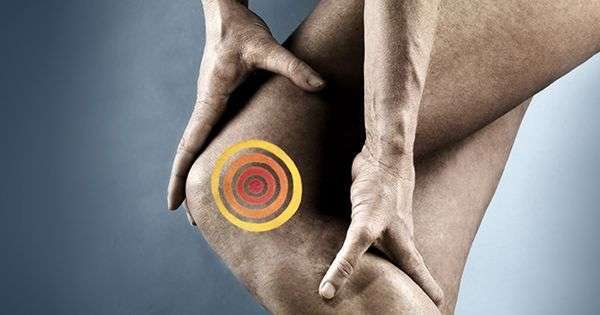Treatment For Knee Popping
Knee Popping is a common condition and does not pose any threat to the knee and there is no need for any treatment for Knee Popping alone, although the condition causing the knee popping like an injury or a tear of the ligament and conditions like arthritis or chondromalacia patella needs treatment for which you need to consult with your treating physician. Citing an example if arthritis is causing Knee Popping then the physician will prescribe medications for pain relief like antiinflammatories. The physician may also recommend application of ice alternating with heat for 15 to 20 minutes two to three times a day. A knee brace may also be recommended for immobilization and allowing the inflammation or injury to heal. The physician may also recommend you to a physical therapist to formulate an exercise regimen to increase the strength and stability of the knees and promote range of motion.
Glucosamine along with chondroitin is a known effective treatment for arthritis. Apart from this using fish oil and omega 3 fatty acids have also shown to be effective in treating arthritis.
Apart from medications there are also certain natural remedies in the form of herbal teas which are useful for treating arthritis causing Knee Popping and pain.
It is important to make note of activities that causes knee popping and to avoid them.
Why Your Knees Pop When You Squat
Do you hear a sound from your knee and the surrounding joints? Perhaps more noticeable when you squat?
This condition is called knee popping. It usually comes with a sudden sharp and well-perceived noise from the knee joints.
These sounds vary and may sound like grinding, crackling, grating, or crunching. They are more prevalent when performing repetitive knee extensions and flexions or squats.
A normal knee pop may not signify a debilitating or severe problem. However, if it comes with pain and swelling of the affected area, it may likely be a serious case.
How To Keep Knees Healthy
If youre between 18-64 years old, do a variety of exercises regularly to strengthen your legs and knee joints.
- 150-300 minutes of moderate-intensity aerobic activity, AND
- Strength training twice a week.
- Do it under the guidance of a personal trainer to prevent injuries.
Also, try to keep your BMI below 25. The higher the BMI, the lower your knee health.
Combine this with a healthy lifestyle for best results eat nutritious foods, sleep well, and take care of your mental health.
If you have knee osteoarthritis, please follow the indications of your healthcare provider to prevent it from getting worse.
Recommended Reading: Rebuilding Knee Cartilage Naturally
Real Worry: Loud Pop At Time Of Injury Followed By Swelling Instability And Giving Way
When a patient says to me, Doc, I heard a pop and my knee swelled, it is definitely a cause for concern. If there is a pop at the time of injury, the knee has almost certainly been damaged. You have most likely injured either your ligaments anterior cruciate ligament, posterior cruciate ligamentor medial collateral ligament or the meniscusor articular cartilage. The knee will usually swell up after these kinds of injuries.
If there is pain, swelling, or giving way of the knee, we will do a careful exam, history, X-ray, and MRI. By studying the cartilage and soft tissue within the knee, we can determine which tissues need to be repaired. Sometimes careful physical therapy, combined with injections, can fix the problem and help you avoid surgery.
So remember: If you hear clicks and pops in your knee but feel no pain or swelling, dont worry. It is normal. If you have pain, instability, or swelling, make sure you check it out to avoid further damage to the joint. The philosophy on this has changed from rest your knee and wait until you are older for a joint replacement to fix the problem ASAP by repairing, regenerating, or replacing the missing tissue and cartilage so that you may never develop arthritis or need a knee replacement.
While it is always best to hear the sounds of silence, snap, crackle, and pop sometimes need to be listened to as well.
Posterior Cruciate Ligament Tears

The PCL crosses over the ACL and prevents forward shifting of the shin bone. The PCL is typically injured by falling and landing directly on the front of the knee joint.
PCL tears can often be treated with nonsurgical treatment when sustained as an isolated injury, but are more commonly treated surgically when combined with other injuries.
You May Like: How To Whiten Knees And Elbows
What If It Hurts When My Joints Pop Or Grind
You should be concerned if you have joint noise that is accompanied by pain, discomfort or swelling. This could be a sign that medical attention is required. Two of the most common cause for knee pain are:
Why Do The Knees Click When You Bend Or Straighten Them
Some of the causes or conditions which cause the knees to click upon bending or straightening include:
Knee clicking commonly falls into one of three categories given below:
Pain-Free Knee Clicking: Patient has knee clicking without any pain. In such cases, this is not a cause for concern.
Painful Knee Clicking With Injury: In some cases, when the patient has injured the knee, by twisting it awkwardly, then there would be an abrupt click or a pop heard, which indicates that some part of the knee has been damaged.
Recurrent Painful Knee Clicking Without Injury: Some patients can gradually develop knee clicking without any apparent cause.
Read Also: Regrow Knee Cartilage Naturally
Possible Causes Diagnosis And Treatment
Knee popping can be a sensation that something is moving around in the knee. There may also be an audible sound associated with the popping, which in medical terms is called crepitus. This can also cause what we call mechanical catching or locking, which may make the knee feel like it is stuck in an extended or flexed position, and you have to move it in certain ways to get out of that. This knee popping sensation or sound or could be a very simple issue or it could be a sign that more serious damage is going on in the knee, so determining what is causing it is very important.
Why Does My Knee Pop When I Walk
Hearing occasional pops, snaps, and crackles in knees when you walking does not necessarily mean you have arthritis. Other joints may even make these noises once in a while, too. Nevertheless, the noises are common in those with arthritis. Medical professionals call this sound crepitus . This term usually describes the joints, but can be used to describe lung sounds too.
You May Like: Can You Use An Inversion Table After Knee Replacement
Natural Home Remedies For Knee Pain
Sometimes knee pain does not always require a complicated procedure for treatment. There are simple home remedies that can help ease pain and provide relief. Such as
Assess And Diagnose Your Pain
Consider the type of pain you experience. Is it moderate or severe?
Pain from strain, sprains, minor injury, or inflammation are easily self-managed, however, persistent pain requires immediate medical attention.
RICE Therapy
Rest, Ice, Compression, Elevation are applicable for knee strains or sprains from twisting your legs or falling. Raise the affected leg or feet, apply a cold compress to your knee and wrap with a compression bandage.
Do not tightly wrap around the affected area so you dont cut off circulation. Keep your legs and feet elevated.
Exercise
Daily exercise can go a long way in promoting strong muscles and mobility.
Physical activities such as cycling, walking, swimming, and yoga not only improve your muscles but also your overall functionality.
However, rest if you have an injury, severe knee pain, or a flare-up of symptoms.
Hot And Cold Therapy
Heat therapy helps ease the pain, while cold therapy reduces inflammation. Alternate between the two, but start with cold therapy for the first two days. Warm baths and showers can help ease stiff joints.
Ointment
Research shows that several herbal remedies and ointments can be as effective as some over-the-counter creams. Consult your doctor or physician before using herbal ointments.
Knee Braces And Other Supports
If your noisy knee is the result of osteoarthritis, your doctor might suggest using a knee brace or knee sleeve to support your knee joint, as research from 2014 suggests that it might help.
Orthotic inserts in your shoes might help too. It might not eliminate the noise, but a cane might help you get around a little easier, too.
Recommended Reading: How To Regrow Cartilage Naturally
Want To Learn How To Get The Results You’ve Always Wanted Without Extreme Diet Or Exercise
Sign up for this FREE 5-Day course and you’ll learn:
- How to set yourself up for success from the beginning
- Why meal plans don’t work
- Why more exercise isn’t better
- How to overcome two major roadblocks concerning your hunger and cravings
- The “secret sauce” for long-lasting, life-changing results even when you’re busy, injured, or unmotivated
Treatment For Knee Pain

If youre suffering from persistent knee pain and instability, the physicians and physical therapists at New York Bone & Joint Specialists can get your knee healthy again. We are experts in diagnosing joint disorders and will plan a treatment regimen based on your individual needs. Contact us today for an appointment.
Don’t Miss: How To Whiten Knees And Elbows
Is It Normal For My Knees To Crack All The Time
Many people experience popping or cracking in their knees when squatting, and while this can sound concerning, it is actually very common. As long as you dont have pain or swelling associated with your knee popping, you most likely dont have anything to worry about. There are a few reasons why your knees may develop these sounds. As we get older, the cartilage in the knees can develop uneven areas due to wear and tear. The ligaments in the knee joint could also be tightening or shifting as you move, creating an audible sound.
If the popping or cracking in your knees is painful or leads to swelling, you should schedule an appointment with your doctor to be evaluated. An injury or chronic condition in the knee may require treatment to alleviate your pain and restore your range of motion. If the cartilage in your knee has undergone excessive wear and broken down, such as from arthritis, you will likely be recommended conservative therapies to manage your symptoms. Osteoarthritis, the most common type of arthritis, can gradually damage the cartilage in your knee and make it difficult to move normally without pain. In these cases, knee replacement surgery may eventually become necessary if other treatments do not provide adequate relief.
When To Consider Surgery
Osteoarthritis, when you damage all your cartilage, can also cause knee pops. The wear and tear from high-force impacts or injuries can break down the bone’s cushion. You may want to consider a knee replacement if pain continues after medication and other treatment options.
Also Check: Dcf Compression Knee Sleeve
Why Is My Knee Replacement Clicking And Popping
Ask U.S. doctors your own question and get educational, text answers â it’s anonymous and free!
Ask U.S. doctors your own question and get educational, text answers â it’s anonymous and free!
HealthTap doctors are based in the U.S., board certified, and available by text or video.
Vastus Medialis Oblique Activation
Your VMO, a.k.a. the tear-drop shaped quad muscle that runs along the inside of the kneecap, is often one of the weaker muscles on the thigh, says Reavy. Again, that can pull your kneecap off track. The solution? You guessed it: strengthen it.
Instructions:
Recommended Reading: How To Stop Limping After Knee Surgery
Heard A Pop 6 Different Knee Injuries That Make A Noise
As we get older, we feel new aches and pains, along with hearing new pops in our joints. Some of us crack our knuckles and don’t think about it. When your knee pops, you hope it’s just the joint releasing air and not something more. So, when do you need to worry about a knee pop?
A Meniscus Injury Can Cause Knee Pain Popping And A Locking Sensation
Anther possibility for a pop in the knee and knee pain is a patient that comes in that describes a popping or a locking sensation in the knee. They usually dont have a high impact injury and lets just say theyre walking in the mall, or they do a twisting and turning rotation motion, or theyre playing tennis and all of a sudden their knee catches or gets stuck, and then it becomes very hard to straighten and it becomes painful until they get a pop.
That can mean thats somethings actually getting caught in the joint itself, thats keeping them from extending the knee and that oftentimes means it might be a cartilage or meniscus injury. The meniscus are two discs within the knee. Theres one disc in the inside, the medial ligament meniscus and then theres a lateral meniscus. You can have a tear in either of those discs. They are actually cartilage discs, so this cartilage over time can get soft and all it can take is just a twisting motion, the catch can create a tear so the discs herethis is the medial meniscus, and this is the lateral meniscus. One meniscus on the inside and one on the outside of the knee joint, and you can have a tear right down the middle, like this, and on this view, looking at the knee straight on, like this, it looks like that.
A Bucket Handle Tear Can Cause Your Knee to Lock
Read Also: How To Whiten Knees And Elbows
Medical Conditions That May Cause The Knees To Pop
In cases of a ligament injury, the affected individual will hear a loud popping sound from the knee. There will be severe pain in the knee following the injury. The most common ligaments that get injured in the knee that cause Knee Popping are the Anterior Cruciate Ligament and Medial Collateral Ligament in the knee. These ligaments normally tend to get injured after a blow or trauma to the knee usually during sporting activities like after a tackle in soccer or abrupt twisting of the knee like when dribbling a football. Some of the other symptoms associated with ligament injuries are swelling and pain immediately following the injury along with instability of the knee.
At times an individual can experience Knee Popping without any known traumatic cause. There are certain medical conditions which tend to cause this popping of knees. These conditions are:
Knee Popping Due To Meniscal Tears: There are times when the ligaments and the meniscus in the knee tend to get stretched beyond their limits either due to sporting activity or due to an injury like a slip and fall which results in tearing of the ligament or meniscus. This condition causes Knee Popping and severe pain in the knee.
What Are The Treatment Options For Knee Injuries

- Rest Stay off your knee as much as possible.
- R.I.C.E. Rest, ice, compression and elevation will promote healing and reduce swelling.
- Knee Brace There are many kinds, so it is best to consult your care provider for advice.
- Physical therapy A physical therapist can help you learn techniques and exercises to strengthen your knee and allow it time to heal.
- Surgery Minimally invasive surgery, especially for meniscus tears, can repair the tear and clear out any tissue causing pain, swelling and irritation.
To help protect the knees, try exercises that develop the quadriceps, which are the muscles in the front of the thigh. Exercises that benefit this muscle group are walking, cycling and swimming. Other effective ways of protecting the knees are wearing supportive shoes, warming up before and stretching after exercise, and maintaining a healthy body weight.
The Orthopedic & Sports Medicine Center of Oregon is an award-winning, board-certified orthopedic group located in downtown Portland Oregon. We utilize both surgical and nonsurgical means to treat musculoskeletal trauma, spine diseases, sports injuries, degenerative diseases, infections, tumors and congenital disorders.
Our mission is to return our patients back to pain-free mobility and full strength as quickly and painlessly as possible using both surgical and non-surgical orthopedic procedures.
If youre looking for compassionate, expert orthopedic surgeons in Portland Oregon, contact OSM today.
Phone:
Don’t Miss: Why Does My Knee Hurt When It’s Cold